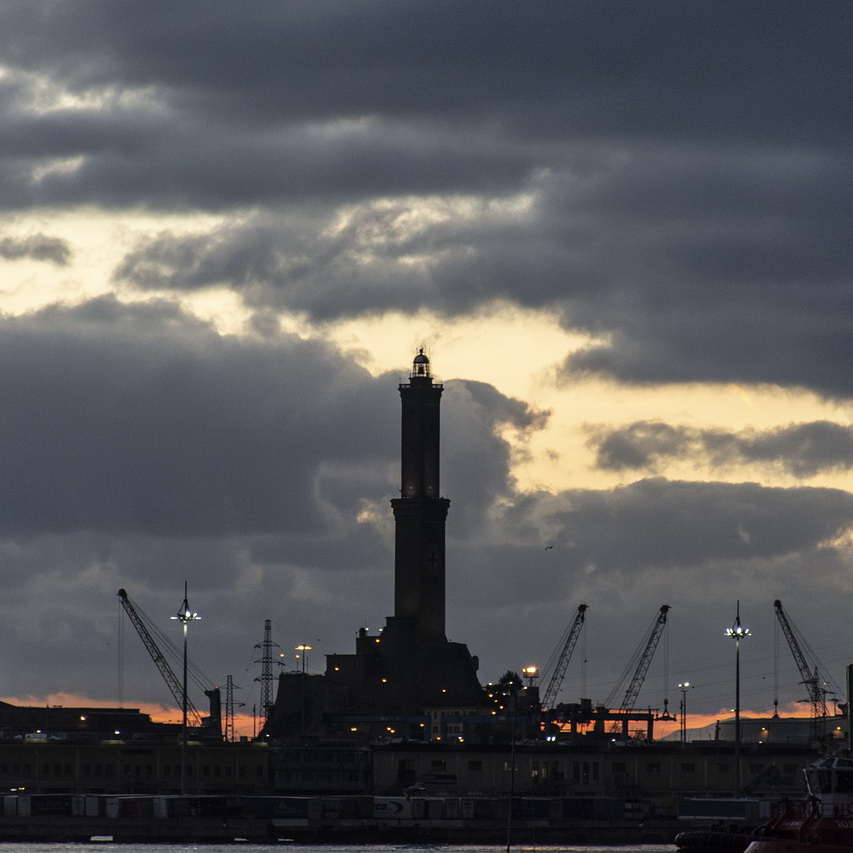Genoa and the dominion of the seas

Nestled on the rugged Italian Riviera, Genoa (Genova, in italian) rises from the Mediterranean like a grand amphitheater, a city that once reigned supreme over the seas. Known as “La Superba” for its glorious past, Genoa’s history is a captivating tapestry of maritime power, economic genius, and vibrant culture.
At the heart of Genoa’s ascendancy was its formidable navy. By the 11th century, Genoa had transformed from a collection of fishermen’s villages into a powerful maritime republic. Its strategic position and intrepid sailors enabled it to dominate Mediterranean trade routes, establishing colonies and trading posts from the Black Sea to North Africa. This naval prowess not only secured Genoa’s commercial interests but also extended its influence over vast territories.
Trade was the lifeblood of Genoa’s wealth. The city’s bustling port became a melting pot of cultures and goods, from exotic spices and silks to precious metals and fine wines. Genoese merchants were shrewd and innovative, developing sophisticated trading networks that spanned continents. The riches of the East flowed through Genoa, making it one of the wealthiest cities in Europe.
But Genoa’s influence was not confined to trade alone. The city became a financial powerhouse, pioneering banking practices that laid the groundwork for modern finance. The Banco di San Giorgio, established in 1407, was one of the earliest state banks and played a crucial role in managing public debt and financing maritime ventures. Genoa’s bankers were renowned for their expertise, lending money to kings and popes, thus wielding immense political and economic power.
Amidst this backdrop of prosperity and innovation, Genoa’s skyline was punctuated by the iconic “Lantern.” This towering lighthouse, built in the 12th century, guided ships safely into the bustling harbor and stood as a symbol of the city’s maritime dominance. The Lantern, with its distinctive hexagonal shape and proud stature, remains a testament to Genoa’s enduring legacy.
Genoa also gifted the world one of its greatest explorers, Christopher Columbus. Born in 1451, Columbus embodied the adventurous spirit of his hometown. His voyages across the Atlantic Ocean, sponsored by the Spanish Crown, opened up new worlds and ushered in an era of global exploration. Though his legacy is complex, Columbus’s roots in Genoa highlight the city’s role as a crucible of maritime ambition and discovery.
Walking through Genoa today, one can still feel the echoes of its illustrious past. The narrow, winding streets of the old town, the grandeur of its palaces, and the vibrant markets evoke a sense of the city’s historical importance. Genoa’s proud maritime tradition continues to influence its culture and identity, drawing visitors to its shores to marvel at its rich heritage.
Genoa’s dominion of the seas was a remarkable chapter in the history of the Mediterranean. Its naval might, trading acumen, and financial innovation made it a beacon of power and prosperity. The legacy of Genoa, the “Superb,” endures in its architecture, its culture, and the indomitable spirit of its people. For travelers seeking to immerse themselves in the grandeur of a bygone era, Genoa offers an unforgettable journey through the annals of maritime history.


